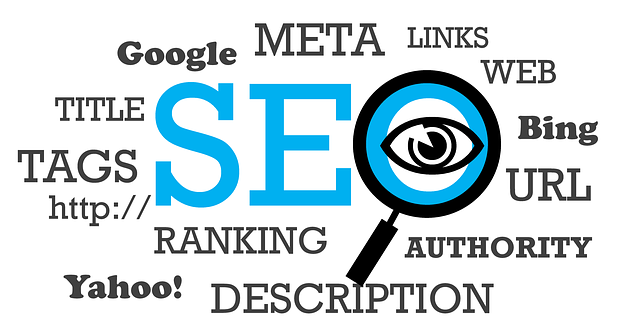Did you know that 81% of consumers conduct online research before making a purchasing decision? That includes finding a financial advisor.
But with so many options online, how can you attract more potential clients to discover YOU?
The answer lies in SEO. A strategic approach to making your website a magnet for qualified leads searching for financial guidance.
Understanding the basics of Search Engine Optimization (SEO) has become a necessity for financial advisors. The right digital marketing strategies can significantly improve your online presence, helping prospective clients seeking financial advice find you easily.
This guide will provide everything you need to know about SEO for financial advisors. We’ll cover the basics of SEO, discuss why it’s important for financial advisors, and outline four key strategies for improving your SEO.
What is SEO?
SEO is optimizing your website and online content to improve its visibility in search engine results pages (SERPs). When people search for terms related to your services, such as “financial advisor near me” or “retirement planning tips,” you want your website to appear at the top of the search results.
There are two main types of SEO:
- On-page SEO refers to optimizing your website’s content and structure to improve its ranking in search results.
- Off-page SEO refers to factors outside of your website that can influence your ranking, such as backlinks from other websites.
Why is SEO Important for Financial Advisors?
There are several reasons why SEO is important for financial advisors:
- Increased visibility: SEO can help you reach a wider audience of potential clients searching for financial advice online.
- More qualified leads: When people search for specific keywords related to your services, you’re more likely to attract qualified leads interested in what you offer.
- Credibility and trust: A high ranking in search results can help you establish credibility and trust with clients.
- Cost-effective marketing: SEO is a cost-effective way to market your financial advisor services. Once you’ve optimized your website and content, you can continue to reap the benefits for years.
4 Key SEO Strategies for Financial Advisors

Now that you understand the importance of SEO for financial advisors let’s consider five key strategies you can use to improve your SEO:
1) Keyword Research
Keyword research is the foundation of any successful SEO strategy. It involves identifying the keywords and phrases your target audience uses to search for financial advice online.
Here are some tips for conducting keyword research:
- Start with broad keywords: Brainstorm a list of broad keywords related to your financial advisor services. For example, some broad keywords for a financial advisor might include “financial planning,” “retirement planning,” or “investment management.”
- Use keyword research tools: Several free and paid keyword research tools are available online. These tools can help you identify relevant keywords, see how many people are searching for those keywords each month, and find related keywords you may have yet to consider.
- Consider long-tail keywords: Long-tail keywords are more specific keyword phrases that are typically less competitive than broad keywords. For example, a long-tail keyword for a financial advisor might be “best financial advisor for millennials or Gen X.”
Once you’ve identified a list of relevant keywords, you can start incorporating them into your website content, meta descriptions, and title tags.
2) High-Quality Content Creation
Creating high-quality content is one of the most important things you can do to improve your SEO. Search engines favor websites that provide valuable and informative content to their users.
Here are some tips for creating high-quality content for your financial advisor website:
- Focus on your target audience: When creating content, always keep your target audience in mind. What are their financial goals and concerns? What kind of information are they looking for?
- Provide valuable insights: Your content should provide helpful insights and advice to your readers. Don’t just try to sell your services.
- Be clear and concise: Your content should be easy to read and understand. Avoid using jargon or technical terms that your audience may not be familiar with.
- Publish fresh content regularly: Search engines favor websites regularly updated with fresh content. Aim to publish new blog posts or articles at least a few times per month.
3) On-Page Optimization
On-page optimization refers to optimizing the content and structure of your website to improve its ranking in search results.
Here are some key on-page optimization techniques:
- Title tags and meta descriptions: Your title tags and meta descriptions are the snippets of text that appear in search engine results pages (SERPs). They should be optimized for your target keywords and accurately reflect the content of your web pages.
- Headings and subheadings: Use them to break up your content and make it easier to read. Include your target keywords in your headings and subheadings.
- Internal linking: Link to other relevant pages on your website. This will help search engines understand the structure of your website and improve your overall SEO.
- Mobile-friendliness: Make sure your website is mobile-friendly. As more people search for information on their mobile devices, your website must be easy to navigate and read on a small screen.
- Image optimization: Optimize your images by including alt text that describes the image and incorporating your target keywords.
- Technical SEO: Technical SEO refers to the technical aspects of your website that can affect your ranking in search results.
Here are some critical technical SEO factors to consider:
- Website speed: Your website should load quickly. Slow loading times can hurt your SEO and bounce rate (the percentage of visitors who leave your website after a short time).
- Website structure: Your website should have a clear and logical structure. This will make it easier for search engines to crawl and index your website.
- Schema markup: Schema markup is a type of code that you can add to your website to provide search engines with more information about your content. This can help your website appear in richer search results, such as featured snippets.
4) Off-Page SEO
Off-page SEO refers to factors outside of your website that can influence your ranking in search results. One of the most important off-page SEO factors is backlinks. Backlinks are links from other websites to your website. Search engines see backlinks as a vote of confidence in your website, and they can significantly improve your ranking.
Here are some ways to build backlinks:
- Guest blogging: It’s a great way to get backlinks from high-quality websites. Write guest blog posts for websites that are relevant to your target audience.
- Directory listings: Submit your website to relevant online directories.
- Social media: Share your content on social media and encourage others to share it. Social media engagement helps build backlinks to your website.
Conclusion
SEO is an ongoing process, but by implementing the strategies outlined in this guide, you can start improving your website’s ranking in search results and attracting more qualified leads for your financial advisor services.
Here are some additional tips for SEO success:
- Stay up-to-date with the latest SEO trends: Search engine algorithms are constantly changing, so it’s essential to stay up-to-date with the latest SEO trends.
- Be patient: SEO takes time and effort. Don’t expect to see results overnight.
- Track your progress: Use analytics tools to track your website’s traffic and ranking. This will help you see what’s working and what’s not.
By following these tips, you can develop a successful SEO strategy that will help you attract more clients and grow your financial advisor business.
Partner With Content Lab Solutions for Your Financial Advisor Marketing

Content Lab Solutions specializes in crafting powerful SEO content specifically for financial advisors. We understand your unique needs and challenges.
Our team can help you develop and implement a comprehensive SEO strategy that will help you achieve your business goals.
Contact us today to learn more about our financial advisor content marketing services!
FAQs
How Can I Get Started With SEO for Financial Advisors?
Getting started with SEO is easier than you think. Here’s a breakdown:
- Keyword research: Identify the keywords and phrases potential clients use to find financial advisors online. Tools like Google Keyword Planner, SEMrush, or Ahrefs can be helpful.
- Content creation: Develop informative and valuable content around your target keywords. Focus on answering your audience’s financial questions and establishing yourself as an expert.
- On-page optimization: Optimize your website’s structure and content for your target keywords. This includes title tags, meta descriptions, headings, and image alt text.
- Local SEO: If you cater to a local clientele, claim and optimize your Google My Business profile. Encourage clients to leave positive reviews.
How Often Should I Create New Content for My Website?
Consistency is key for SEO. Aim to publish fresh content, like blog posts or articles, at least a few times per month. This shows search engines your website is active and provides valuable information to your audience.
Are There Any Free SEO Options Available?
Absolutely! There are several free SEO tools available. Google Search Console helps you monitor your website’s search results performance. Keywordtool.io is a free alternative for keyword research. While paid tools offer more features, these free options can be a great starting point.
How Long Does It Take To See Results From SEO?
SEO is a long-term strategy. It typically takes several months to see significant improvements in your website ranking. However, consistently creating high-quality content and optimizing your website will gradually build authority and attract more qualified leads.
